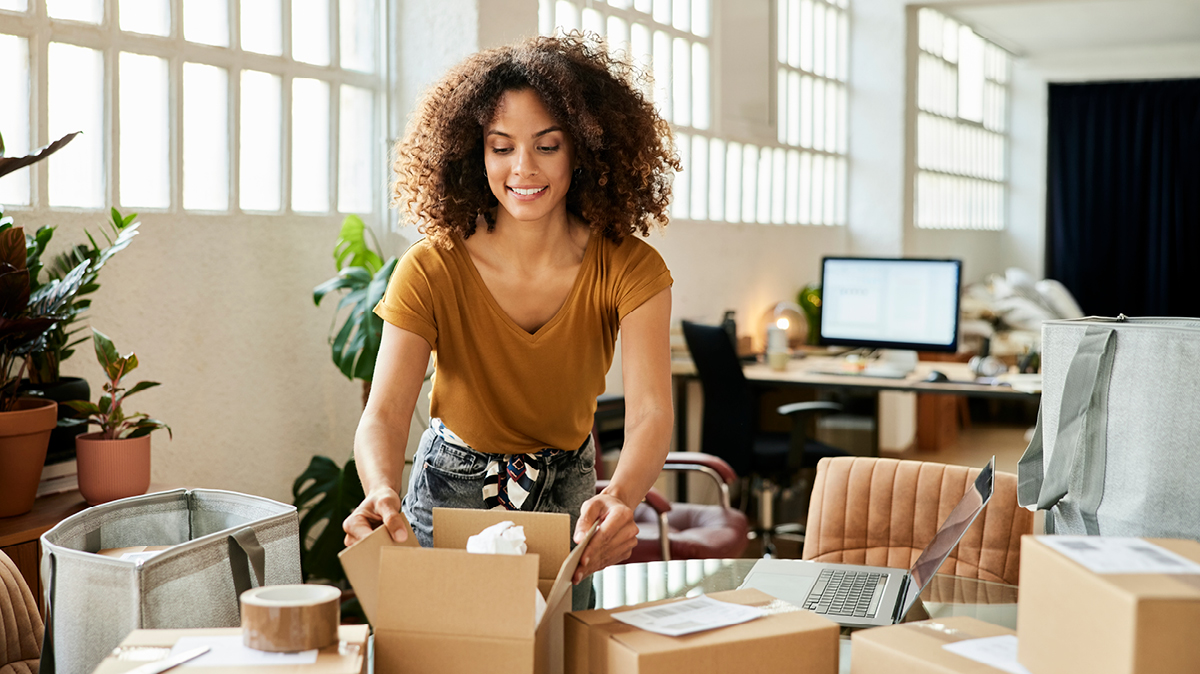The way your product is packaged, sealed and opened by your customers says so much about who you are as a small business. If you’re not already using some of the more sustainable packaging options available, such as paper wrap, cardboard boxes and even glass, now is the perfect time to make the switch. In fact, the Australian government is working towards a commitment to establish a circular economy for packaging, with the aim of making packaging 100 per cent reusable, recyclable or compostable.
Australians produce almost 76 million tonnes of waste each year, with more than a third of this ending up in landfill. To help your business become part of the solution, here’s a guide to sustainable packaging.
Why Should We Make the Switch to More Sustainable Packaging?
“Globally, waste production has spiralled out of control,” says Dr Paul Harvey, an environmental scientist and author of ‘The Plasticology Project’. “Ultimately, it can be distilled into two things: change in consumer habits coupled with rapid population growth over the last century, and poor resource management. The first means that we are consuming more. The second means that we don’t have very good ways to manage the waste generated from our consumption.”
While switching to more sustainable packaging won’t magically wipe out our global waste problem, it’s a step in the right direction. A general rule of thumb is less packaging is better. “And choosing packaging that can be reused, recycled and repurposed,” says Dr Paul.
SEE ALSO: Sustainable Work Practices: 5 Ways to Start Now
Research Packaging Ideas to Fit Your Business

One small-business owner looking at more sustainable approaches to packaging is Emily Jones, the brains behind Tales & Tea, an online gift box retailer. She launched her business in 2020, and originally used traditional packaging like poly mailers, sticky tape and bubble wrap for her products. “I soon realised I was not staying true to my core values, and I decided to change the packaging over time, using up my existing stock and then replacing it with more sustainable options,” she says.
The process took time, as Emily compared costs and found local suppliers of recyclable packaging. “Try talking to other businesses in your industry,” she advises. “Investigate all the options, research the pros and cons of recycled materials and find the best application for these in your business.”
Ideas for Recyclable Packaging
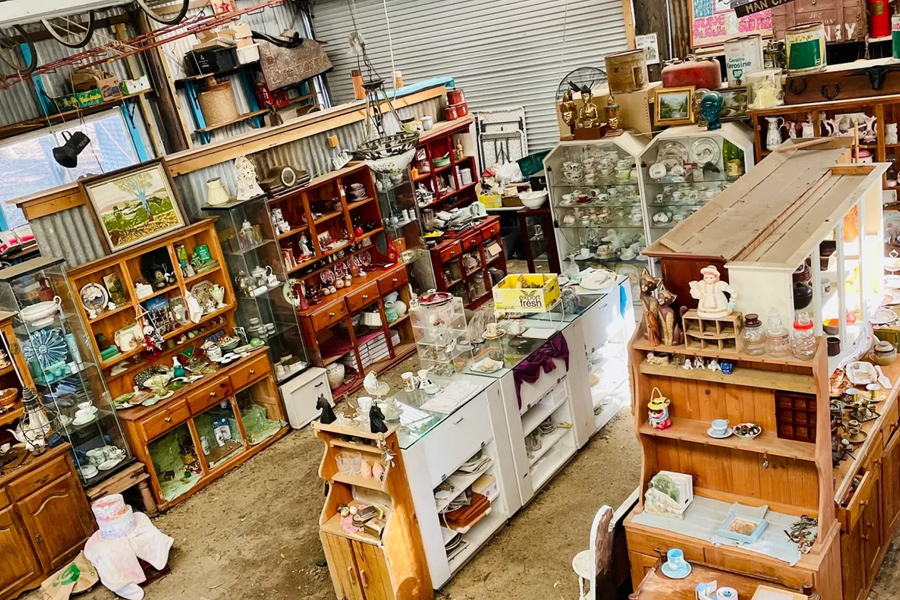
For Deb Kassis, who runs Rustyque, an online antiques and collectables business based in Sydney, using packaging that reduces waste just makes sense. “Being in the antiques business, it’s all about giving items a second chance at life,” she says. “I save things destined for landfill all the time, clean them up and find them a new home. I try to be as waste-free as possible.”
As part of her packing process, Deb collects used cardboard boxes from friends, family and neighbours and re-purposes them to ship her precious products. Often she flattens boxes and cuts them up to create the perfect-shape-and-size package. “It works for me. My customers know they aren’t buying something new so they don’t expect items to arrive in new packaging,” she says.
SEE ALSO: More Sustainable Business Practices Owners Are Embracing
Sustainable Packaging Essentials
Paper and Cardboard
First, investigate fibre-based materials like paper and cardboard and see if they will work for you. Cheap, strong and accessible, paper and cardboard packaging is a good option as it can be easily recycled by your customers. Also, look for tubes and envelopes made from recycled sources for a higher sustainability value.
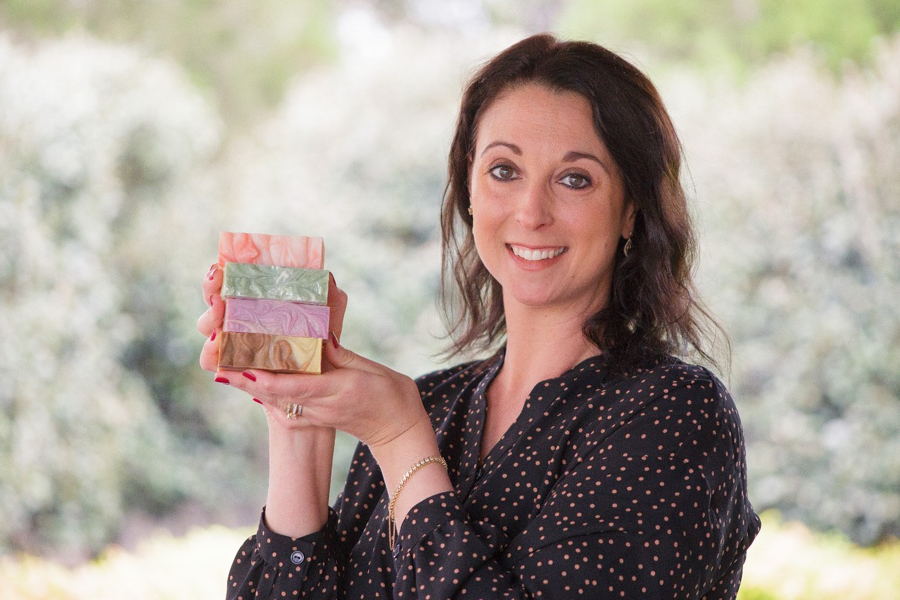
This approach works for Melbourne-based business L’ada Soaps & Scents, which works hard to reduce its carbon footprint and drive a circular economy. And it’s not just about wrapping its beautiful bars of soaps in recycled paper. “Our business has a big focus on sustainability,” says founder Deborah Terkely. “We use solar power to run our equipment and we buy ingredients in bulk from local suppliers to reduce emissions from our cars. It’s very important that our packaging is in alignment with this.” L’ada soaps are also shipped using recycled butcher’s paper and shredded paper for packaging filler. “This helps to keep our products tight and secure in boxes and reduces any movement when in transit,” says Deborah.
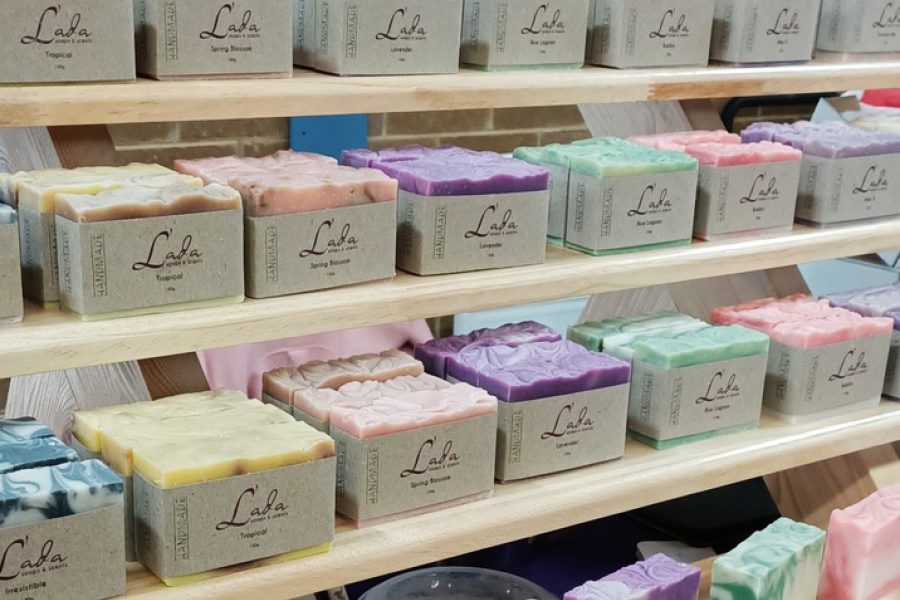
Pure Glass
Do you ship fragile goods? Packaging expert Elli Cohen, the director of Blesbok Enterprises, says glass could be your best bet. “Glass is making a comeback in the packaging market. We make a lot of glass packaging for our clients because they want a high-quality, premium look for their products, and consumers love how it looks and feels,” she says. Glass is a fantastic alternative to single-use plastics – it’s durable and long-lasting, infinitely recyclable and made from raw materials found in nature. Glass jars and bottles can also be repurposed around the home.
Plant-Based Materials
As packaging technology develops, we’re seeing more and more sustainable alternatives emerge with a lower carbon footprint, including packaging made from plant matter. “Many of them actually perform better than their plastic or styrofoam counterparts,” says Dr Paul.
Packaging Extras
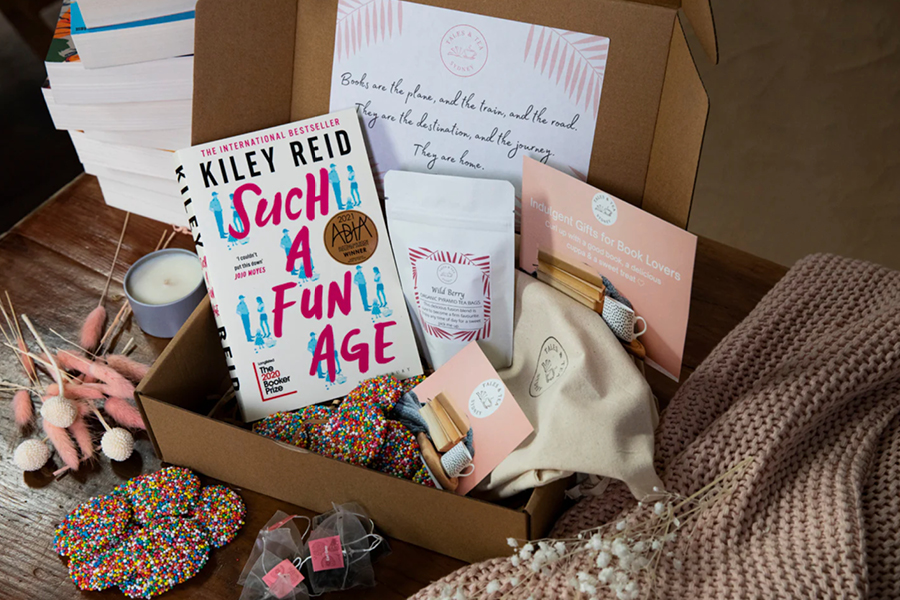
Emily has considered every detail when it comes to her sustainability plan for Tales & Tea. “I use recyclable boxes, recyclable packing tape and recyclable filler to protect contents, and thermal-printed address stickers instead of inkjet printing, [which uses a lot less energy and less ink],” she says.
And, as well as considering packaging, care and thought have also gone into the gift boxes themselves, with special touches such as organic tea and handmade chocolates sourced locally in Australia, as well as reusable calico gift bags. “My customers love receiving their packages not only for the gift inside, but they appreciate that everything is beautifully packaged, too,” Emily says.
SEE ALSO: How to Adopt More Sustainable Business Practices
What to Try
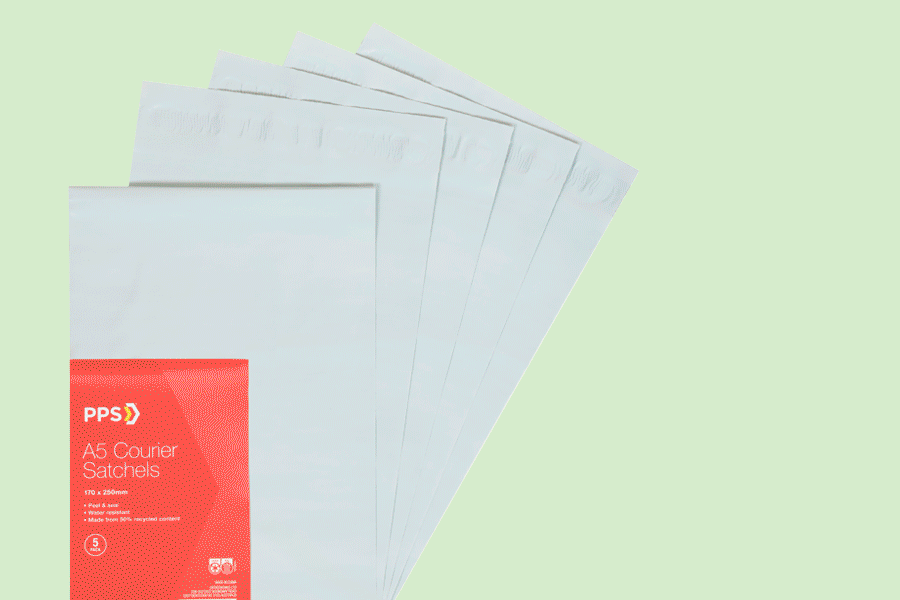
- PPS Courier Bag A5 170 x 250mm 5 Pack: You can send your precious products safe in the knowledge these courier bags are made using a minimum of 50 per cent recycled content.
- PPS Lined Honeycomb Roll 300mm x 10 m: This roll is an alternative to bubble wrap that’s made from 100 per cent recyclable and degradable paper.
- PPS 75% Recycled Plastic Bubble Mailer Size 1 151 x 229mm: This mailer is made with 75 per cent recycled plastic to help protect your mail.
- PPS Kraft Paper Tape 50mm x 25m: Sustainable paper tape is not only durable, it’s a perfect alternative to plastic varieties for sealing boxes, cartons and more.
- Kraft Shredded Paper Filler 1kg: Reusable, biodegradable, compostable and recyclable, this shredded packing filler ticks all the eco boxes.
- Gift Packaging Paper Twine 2mm x 100 m Kraft: The forestry content of this paper twine has been sourced from a supplier certified by the Forest Stewardship Council (FSC), meaning it supports healthy forests and protects wildlife.
- Visy Padded Recycled Paper Mailer 270mm x 360mm: This mailer doubles its positive eco impression by having a recycled outer padding and recycled honeycomb kraft paper cushioning on the inside.
- PPS Tissue Paper 500 x 750mm 100 Pack Pink: When you pack goods with this vibrant FSC-certified tissue paper, you can feel assured knowing you are helping to protect our natural environment.
This was originally published in April 2023 and has since been updated.





